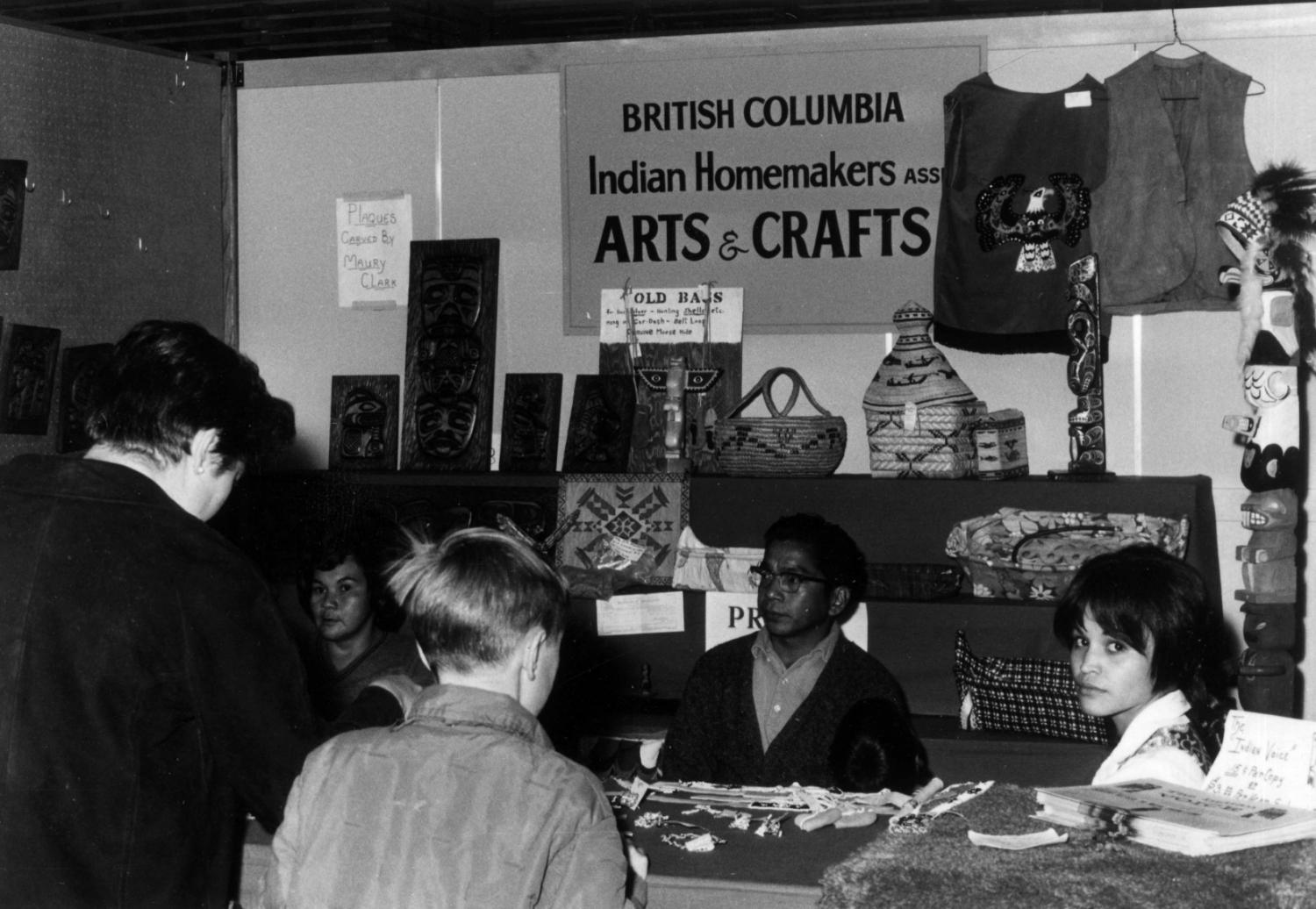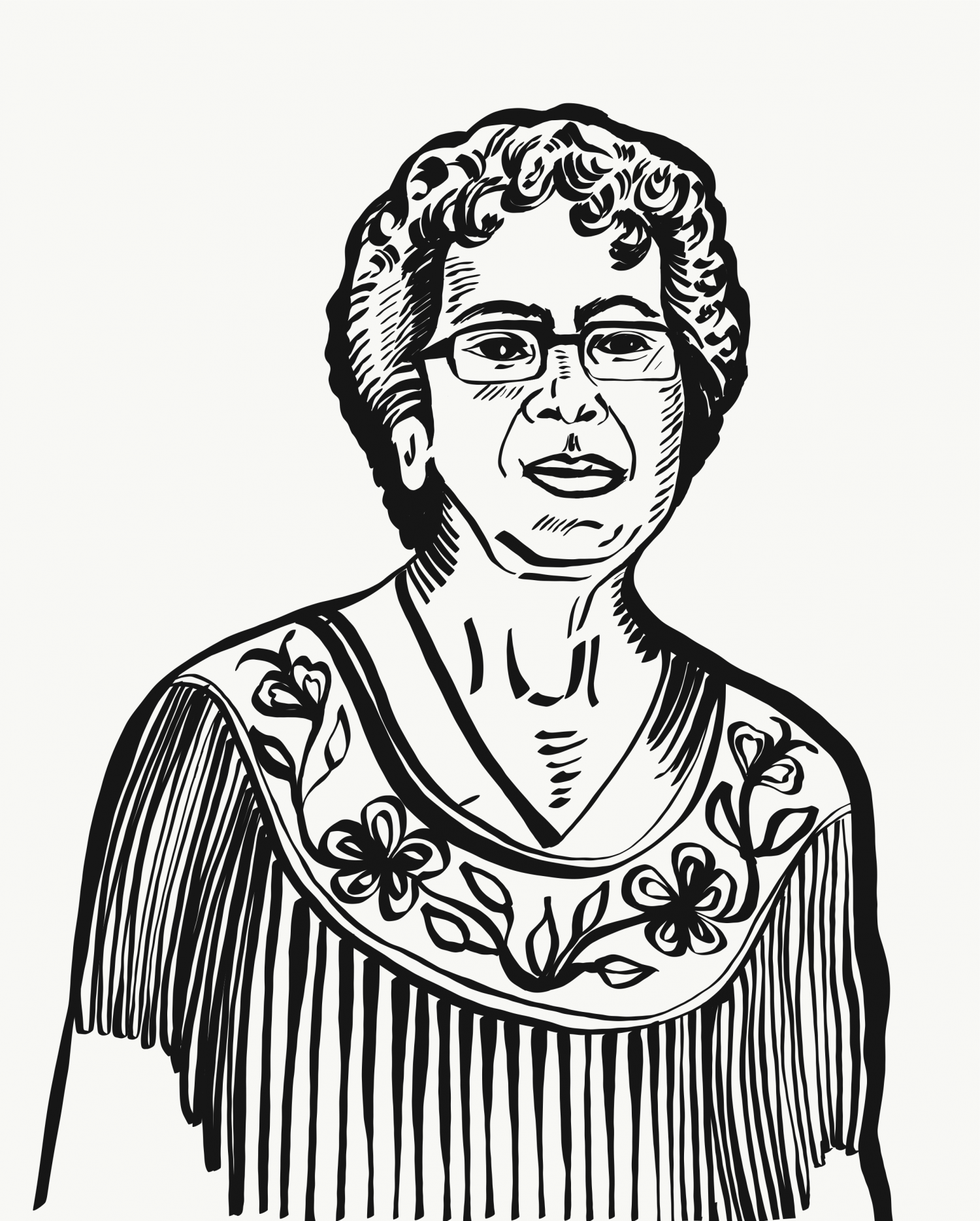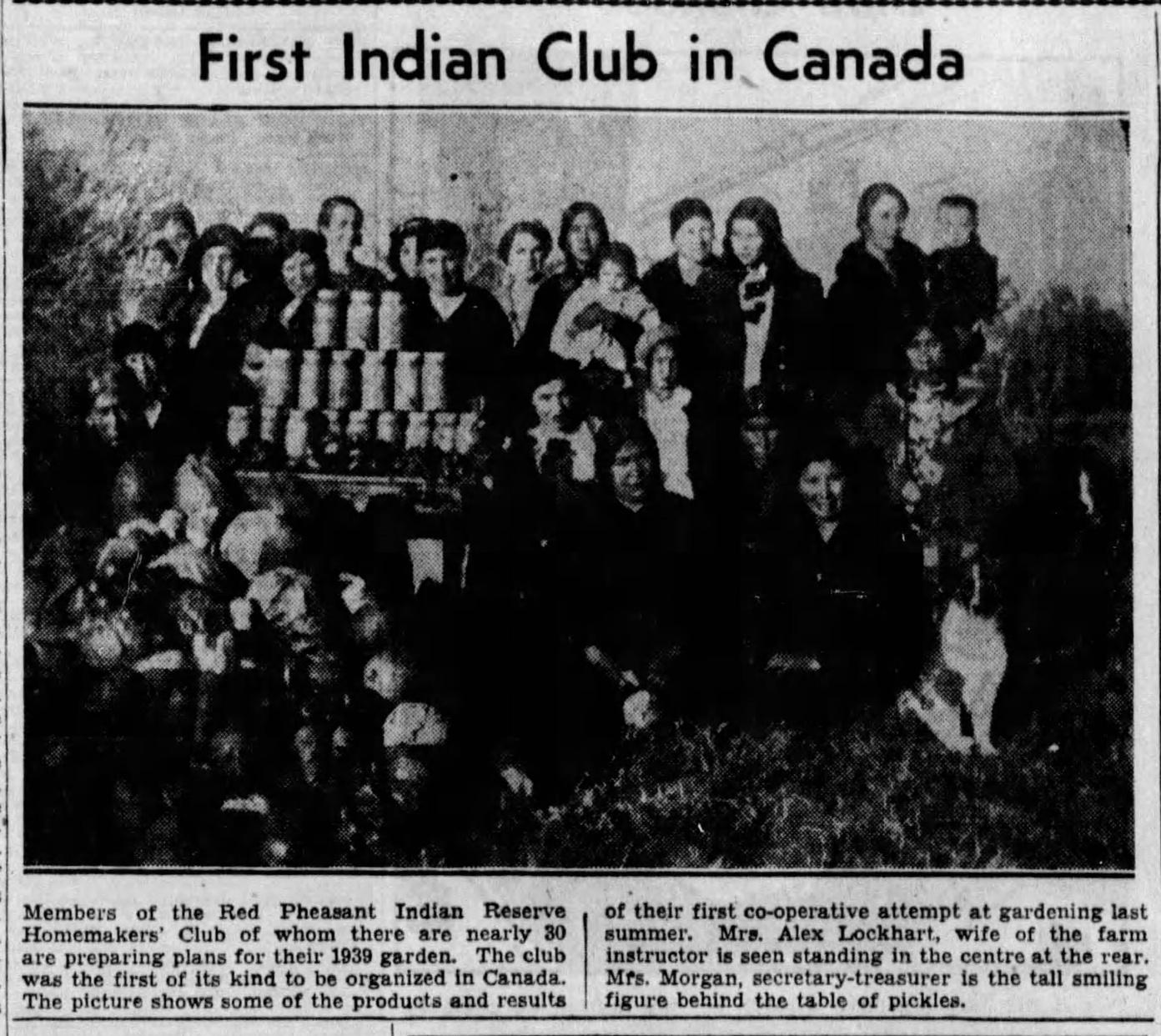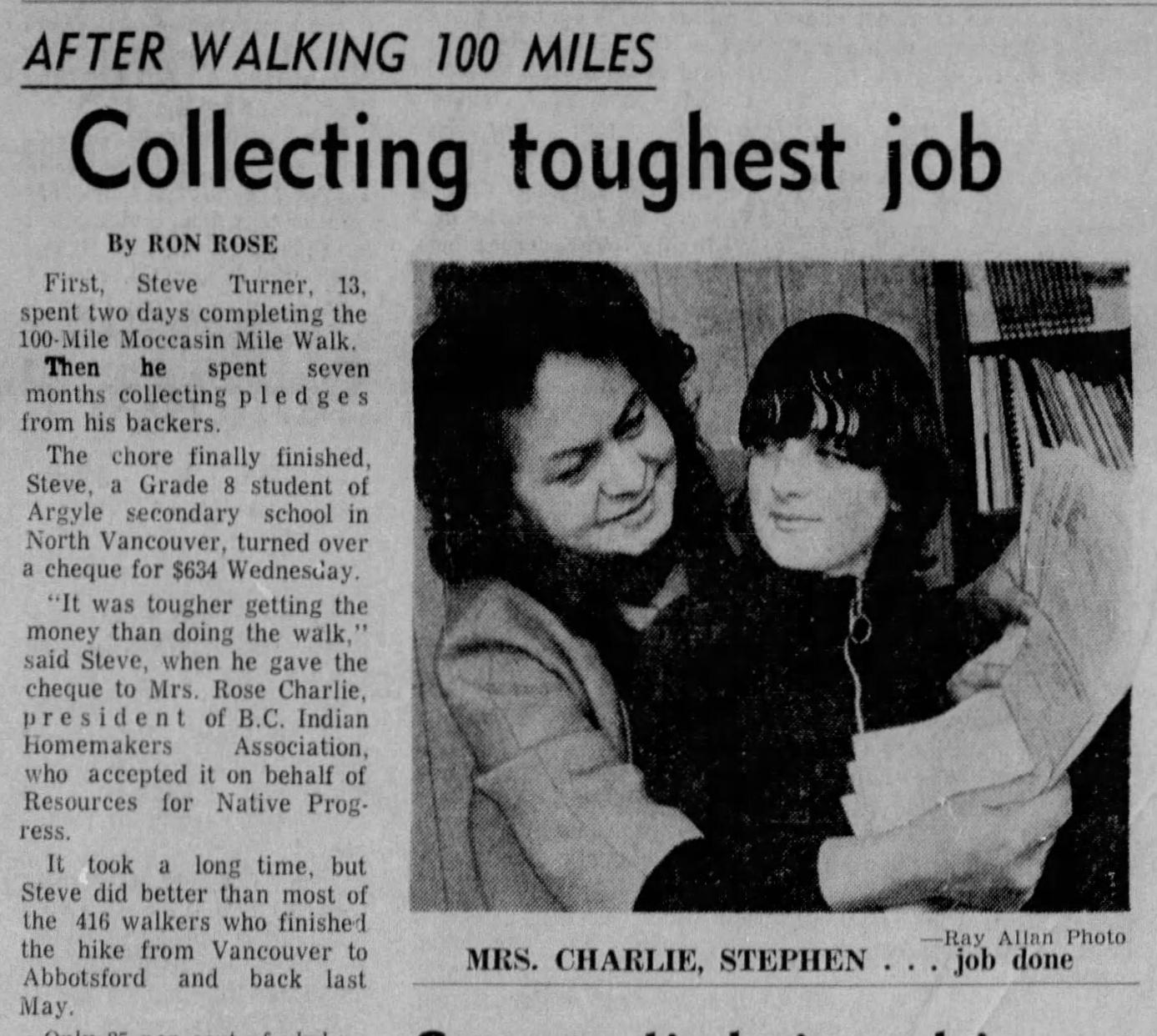Rose Charlie and the IHA
Indigenous women take the helm in a trailblazing group
Date: 1969
In the 1930s, small homemakers' clubs began springing up on reserves across the country. They were founded as a means for women to share domestic skills and knowledge and received modest grants from the Department of Indian Affairs (DIA). Life was hard for many of these women; issues like hunger and poverty took precedence over most other tasks. At first, the clubs responded to their members' pressing needs by organizing craft sales, clothing drives and bazaars. But as the years passed, the groups became more political. Quite often, the focus of their scrutiny was the DIA itself.
Three decades later, the relationship between the DIA and the clubs had soured. The women had begun to take issue with their financial reliance on the government. In turn, some speculate department officials objected to the increasing politicization of the clubs, and funds from the DIA dwindled.
Rose Charlie — a member of the Chehalis Band in the Sto:lo Nation and president of the Vancouver Homemakers' Club — saw this as an opportunity. She proposed incorporating the province's clubs into a single, independent organization: the Indian Homemakers' Association (IHA) of British Columbia, which formed in May 1969. Charlie served as its first president. Members came from different nations, from cities and reserves. At the time, it was one of the only organizations that united First Nations across B.C. That wouldn't be the case for long, though.
Only a month after the IHA formed, Ottawa released its White Paper, otherwise known as the Statement of the Government of Canada on Indian Policy. The controversial document proposed fully assimilating Indigenous people into Canadian society by stripping them of "Indian" status and treaty rights, among several other proposals. It was immediately panned by Indigenous activists across Canada. In order to adequately respond to the White Paper, Charlie and others recognized the need for broader unity between Indigenous people. One of the IHA's first acts was to raise funds for a province-wide meeting between chiefs. They accomplished this through their 100-Mile Moccasin Walk and an ensuing second walk. Thanks to their efforts, the 1969 All Chiefs' Conference took place with representatives from 144 different bands across the province. Representing the IHA, Charlie was one of few women invited to attend. At the conference, the Union of British Columbia Chiefs (UBCIC) was formed. Charlie herself held a seat on the group's executive council, the only woman in such a position.
And yet, the heart of the IHA remained the same. Led by women in a time when such groups were male-dominated, it fought for Indigenous women's health, better education for their children, and culturally-sensitive rehabilitation programs for incarcerated Indigenous women. From 1969 to 1984, the IHA also put out "The Indian Voice," a newspaper that reported on the complexities of gender politics in different First Nations. In 1985, Charlie, the IHA and other activists won a major victory when, after decades of campaigning, the federal government removed Section 12(1)(b) from the Indian Act. No longer would a woman's status as an "Indian" be dependent upon whom she married. This was not only a legal achievement but a symbolic one, as well. Historically, Indigenous women had lived as second-tier "Indians" to men, in large part, because women could not pass their status down to their children; only men could. The change in legislation addressed this inequity.
The IHA dissolved in the early 2000s, only a few years after Charlie had stepped down as president. It left behind a legacy of impressive organizing, serving as a model for many Indigenous groups that followed, including the UBCIC, the Assembly of First Nations, and the Native Women's Association of Canada. The IHA also founded the Aboriginal Mother Centre Society, a drop-in centre that provides childcare support and hot meals. It still exists today, operating in East Vancouver.
Sources:
1. 2003 Recipient: Dr. Rose Charlie – Agassiz. Order of BC, orderofbc.gov.bc.ca/members/obc-2003/2003-rose-charlie/.
2. Barkaskas, Patricia Miranda. The Indian Voice : Centering Women in the Gendered Politics of Indigenous Nationalism in BC, 1969-1984. University of British Columbia Library, Oct. 2009,
3. open.library.ubc.ca/cIRcle/collections/ubctheses/24/items/1.0067761. A Brief Timeline of the Life of the Union of BC Indian Chiefs. The St’Át’Imc Runner, Nov. 2009, kerrycoast.wordpress.com/2014/09/06/a-brief-timeline-of-the-life-of-the-union-of-bc-indian-chiefs/.
4. Converse, Cathy. Mainstays: Women Who Shaped BC. Horsdal & Schubart, 1998.
5. Indian Homemakers' Association of British Columbia. First Nations and Indigenous Studies at the University of British Columbia , indigenousfoundations.arts.ubc.ca/indian_homemakers_association/.
6. Union of British Columbia Indian Chiefs. First Nations and Indigenous Education at the University of British Columbia, indigenousfoundations.arts.ubc.ca/union_of_british_columbia_indian_chiefs/.





